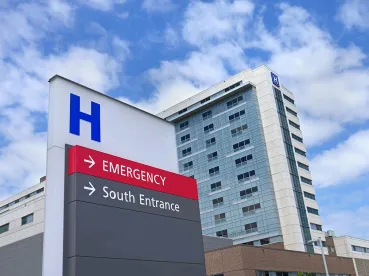On November 13, 2020, the D.C. Court of Appeals upheld a key ruling regarding disproportionate share hospital (“DSH”) payments, in Bethesda Health Inc. v. Azar, a significant victory for hospitals.
Hospitals that treat a disproportionate number of patients under Medicaid receive a higher rate of reimbursement under Medicare to offset those costs incurred – in the form of DSH payments. In calculating the proportion of treatment a hospital provided to Medicaid patients (the Medicaid fraction), the statute and relevant regulations permit the hospital to include not just patients covered under traditional Medicaid plans, but also patients eligible for treatment under experimental Medicaid “demonstration projects” approved by the Department of Health and Human Services (“HHS”) and eligible for matching funds, so long as the services provided under the demonstration project include “inpatient hospital services.”
In Bethesda Health, the plaintiff hospitals calculated their Medicaid fractions including days of care funded by Florida’s Low Income Pool (the “Pool”), an approved Medicaid demonstration project. HHS rejected this approach, arguing that the patients were treated out of charity, rather than as designated beneficiaries of a demonstration project, and therefore should not be considered in their calculations.
The district court sided with the hospitals, holding that it was “obvious to the [c]ourt that uninsured and underinsured patients received inpatient hospital services” through the Pool, because (1) the HHS Secretary authorized federal matching funds to reimburse hospitals for these services, and (2) the hospitals rigorously documented the services provided using funds from the Pool. It was undisputed that patients did, in fact, receive inpatient hospital services funded by the Pool. While HHS tried to argue that the regulations allowed this calculation only if the project entitled specific patients to specific benefit packages, the court disagreed, instead finding that the demonstration project only needs to enable the patient to receive inpatient services, regardless of whether the project gave the patient a right to these services or allowed the patient to enroll in an insurance plan that provided the services.
Finding “no flaw” in the district court’s analysis, the D.C. Court of Appeals upheld the lower court’s decision.



 />i
/>i

